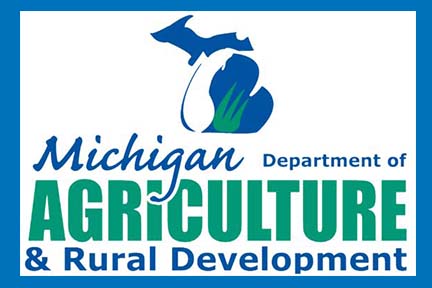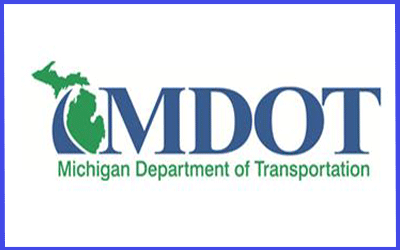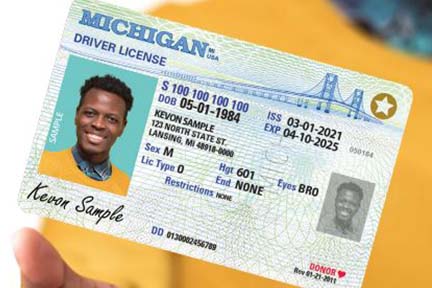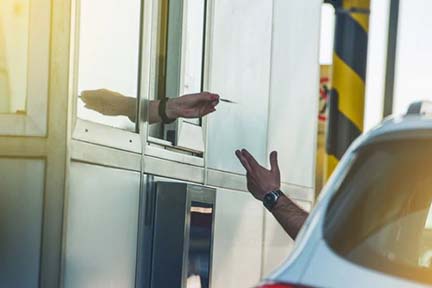| FOR IMMEDIATE RELEASE: April 17, 2025
Media contact: Lynsey Mukomel, 517-290-1734
Program contact: Tracey Barnes, 517-388-4540
MDARD Awards $1.8 Million of Grant Funding for Rural Infrastructure and Industry
Grants will fund renewable energy, food safety and access to safe drinking water
LANSING, Mich. – The Michigan Department of Agriculture and Rural Development (MDARD) today awarded 21 Rural Development Fund Grants promote the sustainability of land-based industries and support infrastructure that benefits rural communities.
“MDARD is committed to supporting the food, agriculture and forest products industries vital to Michigan’s economy,” said MDARD Director Tim Boring. “Through programs like the Rural Development Fund, MDARD can support projects that strengthen infrastructure, promote sustainable land-based industries and deliver new jobs to rural communities.”
Today’s Rural Development Fund Grants provide more than $1.8 million to 21 projects:
- K.I. Sawyer Water Wastewater Department (Gwinn) – $100,000 to ensure the continued safe operation of the aeration building at the K.I. Sawyer Wastewater Treatment Plant, which was built in 1984.
- Ely Township (Ishpeming) – $100,000 to address drinking water quality issues, build a new wellhouse and implement a new water treatment system.
- Northern Michigan University (Marquette) – $100,000 to install a rooftop solar project at the university’s WellBeing Center that will provide reliable renewable energy and reduce utility costs for the campus.
- City of Negaunee (Negaunee) – $100,000 to replace the sewer main on Hungerford Ave and W Prince Street and to address inflow, infiltration and failing sewer by replacing 523 feet of sewer line.
- Superior Hills Association of Parents and Educators (Marquette) – $100,000 to renovate the Superior Hills playground in alignment with the “You Can in Michigan” campaign, which seeks to position the state as a premier destination for families and professionals.
- TCA Management, LLC (Caro) – $100,000 to support hiring up to four new employees and to purchase a new FM200C 2G Dual Wash plant that will produce material critically needed by federal, state and local agricultural and residential customers.
- Pahl Enterprises, LLC (Buckley) – $100,000 to enhance the farm’s country store, pumpkin patch, Santa experience and youth field trips; purchase key components for the commercial kitchen; and improve the structural integrity of the barn.
- Gypsy Distillery (Petoskey) – $91,744 to install a new bottling line that will increase revenue and create new jobs.
- Lakeshore Depot L3C (Marquette) – $65,448 to implement and operate a local food distribution project that will improve access to Michigan-sourced fresh produce and staple foods for institutional and retail purchasers as well as consumers located in the central Upper Peninsula.
- Maurer Meat Processors, LLC (Ubly) – $96,350 to upgrade the shrink-wrap heat tunnel system for packaging and wrapping meat products, thereby reducing the risk of product loss for customers.
- Partridge Creek Farm (Ishpeming) – $100,000 to expand the Ishpeming Intergenerational Community Farm, which boosts production yields and increases access to and participation in the local food economy.
- Home Township (Edmore) – $100,000 to aid farmers and the local community by reconstructing Neff Road between Fleck Road and Tamarack Road by sealing Edgar Road between Wyman Road (CR571) and Neff Road.
- Cassopolis Community Garden (Cassopolis) – $770 to install an irrigation system for the Cassopolis Community Garden, which provides organically and sustainably grown produce for area food pantries.
- Great Lakes Boat Building School (Cedarville) – $52,500 to create and implement the Marine System Lab Pods training program, purchase a Volvo Penta for instructional purposes and to support Summer Friday Tour Days.
- Negaunee/Ishpeming Water Authority (Ishpeming) – $100,000 to install a new water well that will provide safe and high-quality drinking water to Negaunee and Ishpeming in a cost-effective manner.
- Charter Township of Chocolay (Marquette) – $100,000 to fund sewer repair, remediation and improvements to ensure the safe, reliable and efficient operation of a sanitary wastewater system.
- M&M Children’s Museum (Menominee) – $100,000 to support the construction and renovation of the Children’s Museum, a place for the community and surrounding area to use for learning, socializing and exercise.
- RADD Foods (Marquette) – $40,380 for a new initiative to develop and introduce dairy-free cheese products tailored for the restaurant and foodservice industry.
- Michigan State Trust for Railway Preservation (Owosso) – $100,000 to move the existing track switch and extend a current dead-end siding across Washington Street parallel to the Great Lakes Central Railroad’s mainline, thereby increasing passenger capacity.
- Indian Summer Cooperative, Inc. (Ludington) – $100,000 to increase production capacity by installing new applesauce cup packing and palletizing equipment.
- City of Ishpeming (Ishpeming) – $82,977 to create six camping sites with power access generated by a hard-wired ground mounted solar system.
Authorized by Public Act 411 of 2012, Rural Development Fund Grants promote the sustainability of land-based industries including food and agriculture, forestry, mining, oil and gas production and tourism. They also support workforce training, rural capacity building, business development and infrastructure that benefits rural communities.
Those interested in applying can do so through the MiAgGrants system by logging into a citizen or business account. Eligible entities include those within counties with a population no greater than 70,000 residents or micropolitan statistical areas. Priority is given to projects in Marquette County according to statute. MDARD evaluates grant proposals through a competitive process.
For more information about this grant program or a complete list of eligible counties, visit https://www.michigan.gov/mdardgrants. |











